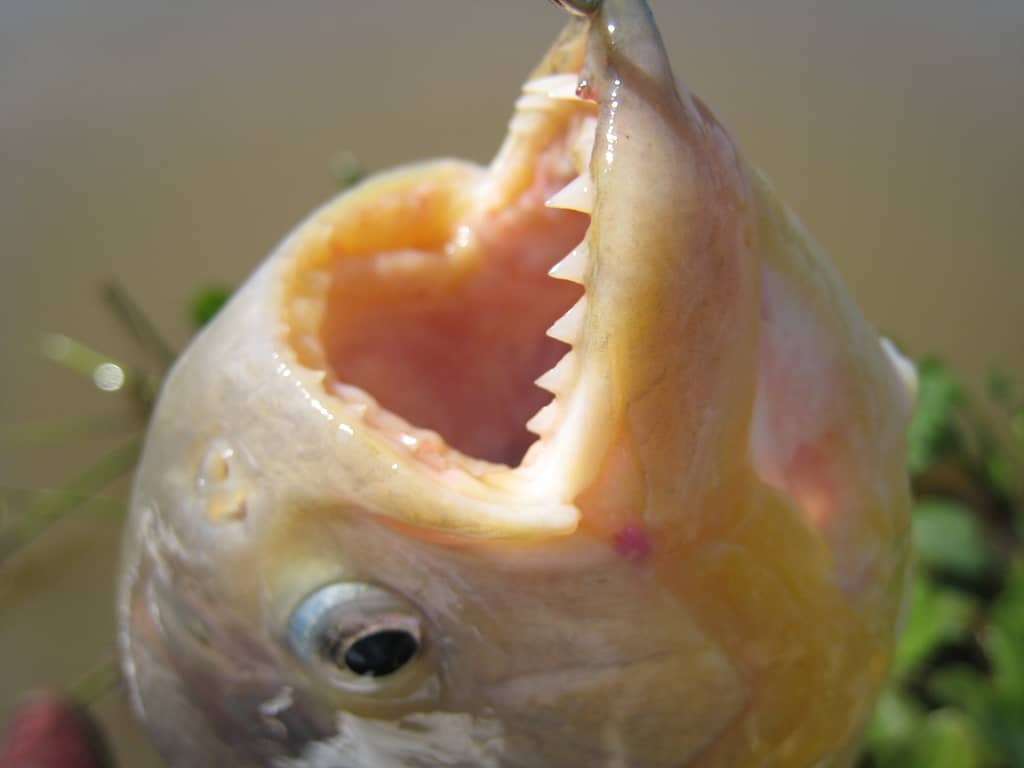Arkansas Angler Catches Piranha, Nearly Loses Finger
OutdoorHub Reporters 05.04.15

The Arkansas Game and Fish Commission (GFC) has confirmed that a piranha was caught in Lake Bentonville last week, and it nearly took a finger along with it.
According to 5News, Robert Headley reeled in the fish after mistaking it for a large perch. After removing the hook (and nearly being bitten in the process) and noting the fish’s shape and large teeth, the angler contacted wildlife officials and a GFC biologist arrived at the lake to examine the creature.
Experts were initially uncertain whether the fish was actually a piranha or a pacu, another South American fish that bears a similar resemblance. Pacu are often better at surviving in colder waters than piranha, and therefore more likely to be discovered by anglers. However, GFC biologists later confirmed that the fish was indeed a piranha. It is believed that the fish may have been released into the lake by a pet owner.
“Apparently, someone put one in the lake. They cannot survive our low winter water temperatures, so no populations have ever been established,” said the AGFC on Facebook.
In fact, experts say that piranhas cannot survive more than a few weeks at most at current water temperatures, indicating that the fish may have only been recently released. It is currently illegal in Arkansas to own piranha, although other cold-weather states do allow pet stores to sell the carnivorous fish. However, it is illegal in all states to release piranha in public waters. Due to the negative effects they may cause to native species wildlife officials advise anglers to keep and report non-native fish like piranha. KNWA reported that Headly killed the fish, even though it would have likely died on its own eventually.
Piranha are capable of surviving in parts of Florida, Texas, and California. Anecdotal reports from anglers describe the fish as vigorous fighters, especially when first hooked. These notorious flesh-eating fish are less commonly found in cold-weather states, where they rarely live long enough to be hooked by fishermen. Officials say that the temperature makes the fish sluggish and non-aggressive, and do not consider them a public hazard.

